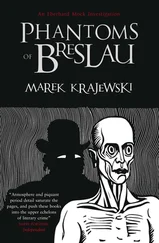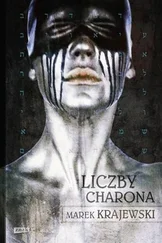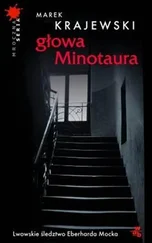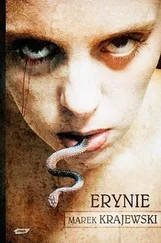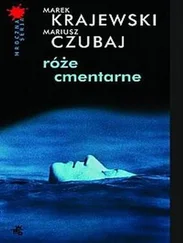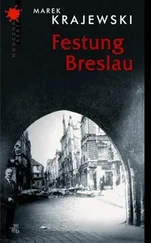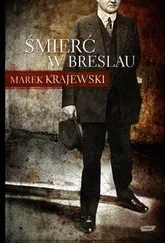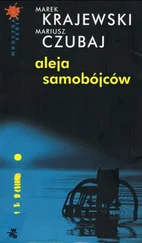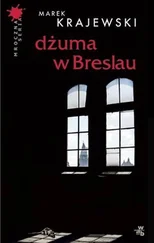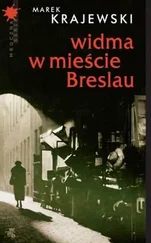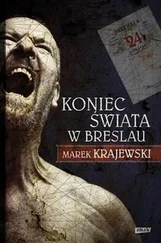Marek Krajewski - Death in Breslau
Здесь есть возможность читать онлайн «Marek Krajewski - Death in Breslau» весь текст электронной книги совершенно бесплатно (целиком полную версию без сокращений). В некоторых случаях можно слушать аудио, скачать через торрент в формате fb2 и присутствует краткое содержание. Жанр: Полицейский детектив, на английском языке. Описание произведения, (предисловие) а так же отзывы посетителей доступны на портале библиотеки ЛибКат.
- Название:Death in Breslau
- Автор:
- Жанр:
- Год:неизвестен
- ISBN:нет данных
- Рейтинг книги:3 / 5. Голосов: 1
-
Избранное:Добавить в избранное
- Отзывы:
-
Ваша оценка:
- 60
- 1
- 2
- 3
- 4
- 5
Death in Breslau: краткое содержание, описание и аннотация
Предлагаем к чтению аннотацию, описание, краткое содержание или предисловие (зависит от того, что написал сам автор книги «Death in Breslau»). Если вы не нашли необходимую информацию о книге — напишите в комментариях, мы постараемся отыскать её.
Death in Breslau — читать онлайн бесплатно полную книгу (весь текст) целиком
Ниже представлен текст книги, разбитый по страницам. Система сохранения места последней прочитанной страницы, позволяет с удобством читать онлайн бесплатно книгу «Death in Breslau», без необходимости каждый раз заново искать на чём Вы остановились. Поставьте закладку, и сможете в любой момент перейти на страницу, на которой закончили чтение.
Интервал:
Закладка:
HALF-PAST ONE IN THE AFTERNOON
Eberhard Mock strolled along Zoppot pier, rejecting the thought of the approaching lunch with distaste. He was not hungry because he had drunk several tankards of beer between meals, interspersed with bites of hot frankfurter sausages. On top of that, for the sake of lunch, he had to relinquish watching the girls stroll by the casino, their lazy bodies provocatively taut under the slippery silk of dresses and swim suits. Mock shook his head and tried once more to chase away a nagging thought which stubbornly drew him towards that distant city suffocating in the hollow of stagnant air, towards those tight, crowded quarters of tenements and dark wells of yards, towards monumental buildings enclosed in the classicistic white of sandstone or neo-Gothic red of bricks, towards islands weighed down by churches and wrapped in the embrace of the dirty green snake of the Oder, towards residences and palaces concealed by greenery, where the “gentleman” betrays the “lady” with reciprocity and the servants merge with the panelling of the walls. The persistent thought drew Mock to the city where someone throws scorpions into the bellies of girls as beautiful as a dream and dispirited men with dirty pasts lead investigations which will always end in defeat. He knew what to call his thoughts: the qualms of conscience.
Filled with beer, sausages and heavy thoughts, Mock entered the Spa House where he was renting a so-called junker’s apartment with his wife. He was greeted in the restaurant by the beseeching eyes of his wife, standing next to two old ladies who did not leave her side for an instant. Mock realized that he was not wearing a tie and turned back to go to their apartment and repair this faux pas . As he was crossing the hotel hall he caught sight out of the corner of his eye of a tall man in dark clothes getting up and making his way towards him. Mock instinctively halted. The man stood in his path and, pressing his hat to his chest, bowed politely.
“Oh, it’s you Hermann,” Mock looked carefully at Baron von der Malten’s chauffeur’s face, grey with fatigue.
Hermann Wuttke bowed once more and handed Mock an envelope with the Baron’s golden initials. Mock read the letter three times, put it neatly back in its envelope and muttered to the chauffeur:
“Wait for me here.”
Shortly afterwards, he entered the restaurant, travel-bag in hand. He neared the table, glared at by the two ladies and followed by the distressful gaze of his wife. She was clenching her teeth so as to swallow the bitter taste of disappointment. She knew that their holiday together was coming to an end — yet one more unsuccessful rational attempt to save their marriage. He did not need to have his travel-bag with him for her to know that, in a moment, he would be leaving the health resort of which he had dreamt for years. It was enough for her to look into his eyes: hazy, melancholic and cruel — as always.
BRESLAU, THURSDAY, JULY 12TH, 1934
TEN O’CLOCK IN THE EVENING
After a two-hour walk through the city centre (Ring and the dark streets around Blucherplatz peopled with rogues and prostitutes), Anwaldt sat in Orlich’s beerhouse, Orwi, on Gartenstrasse not far from the Operetta, looking through the menu. There was a variety of coffee, cocoa, a vast choice of liqueurs and Kipke beer. But there was also something he particularly wanted. He folded the menu and the waiter was at his side. He ordered cognac and a siphon of Deinart mineral water, lit a cigarette and looked around. Soft chairs surrounded dark tables in fours, landscapes of the Riesengebirge hung over wainscotting covered in wood, green velvet discreetly veiled booths and small rooms, nickel taps poured streams of frothy beer into pot-bellied tankards. Laughter, loud conversation and the abundant fumes of aromatic tobacco filled the restaurant. Anwaldt listened attentively to customers’ conversations and tried to guess their professions. As he easily gathered, they were mainly small manufacturers and owners of large craft enterprises selling their wares in their own stores adjacent to their workshops. Nor was there a lack of agents, petty officials and students wearing the insignia of their societies. Colourfully dressed women sauntered through the place, smiling. But, for reasons unknown to him, they avoided Anwaldt’s table. He only realized why when he glanced at the marble table top: on to a napkin embroidered with Trebnitz flowers had crawled a black scorpion. It was moving its crooked abdomen dartingly, directing its venomous sting upwards, defending itself in this way against the hornet which was trying to attack it.
The policeman closed his eyes and tried to get a hold on his imagination. Warily, his hand groped for the familiar shape of the bottle which had found itself on to his table a moment ago. He uncorked it, raised it to his lips. His lips and throat burnt pleasurably with the molten gold. He opened his eyes: the monsters had vanished from the table. He wanted to laugh now at his anxieties. With an indulgent smile, he looked at the packet of Salem cigarettes with its illustration of a large wasp. He filled the balloon of thin glass and drank it in a single draught; he inhaled his cigarette. The alcohol, fortified with a hefty dose of nicotine, infiltrated his blood. The siphon bubbled amicably. Anwaldt began to listen to conversations at the neighbouring tables.
“Don’t worry, Herr Schultze … Isn’t there enough evil in this world to contend with? Really, Herr Schultze …” some elderly gentleman with a bowler hat glued to the crown of his head was mumbling. “I tell you: neither the day, nor the hour … And that’s the truth … Because take that last incident, for instance. The tram was turning into Gartenstrasse from Teichstrasse near the Hirschlik bakery … And, let me tell you, he went and hit a droschka going to the station … The rascal cabby survived, but the woman and child were killed … That’s how that swine sent … into the next world … Nobody knows the day nor the hour … Neither you, nor I, nor this one here or that one there … Hey, you who’s been beaten up, what are you staring at?”
Anwaldt lowered his eyes. The agitated siphon hissed. He lifted the tablecloth and saw two coupling hornets, abdomens interlocked. Swiftly, he smoothed down the tablecloth which changed into a sheet. The sheet used to cover Banker Schmetterling clenched in a painful knot with the beautiful schoolgirl, Erna.
He drank two glasses of cognac on the trot and glanced over to the side, avoiding the eyes of the fat drunkard who was revealing the secret wisdom of life to Herr Schultze.
“What? Under the statue of Battle and Victory on Konigsplatz? They go there, you say? Servants and nursemaids on the whole? You’re right, that is an exceptional situation. You don’t have to woo or strut … All they want from you is what you want from them …” a thin student was drinking Beaujolais straight from the bottle and becoming more and more excited. “Yes. It’s a clear situation. You approach, smile and take her home. You don’t waste your money or lose your honour. Eh, what competition are soldiers … Excuse me, but do I know you?”
“No. I was lost in thought …” Anwaldt said. (I’d like to talk to someone. Or play chess. Yes, chess. As at the orphanage once. Karl — he was one keen chess-player. We would place a cardboard suitcase between the beds and put the chessboard on it. Once, when we were playing, the drunk tutor came into the dormitory.) Anwaldt clearly heard the clatter of chess pieces scattering now and felt the kicks dealt by the tutor to both the suitcase and their bodies hiding under the beds.
Two glasses, two gulps, two hopes.
“Herr Schultze, it’s good that they threw those professors out of work. No Jew’s agoing to teach German children … Agoing to fu … fu … Agoing to foul …”
Читать дальшеИнтервал:
Закладка:
Похожие книги на «Death in Breslau»
Представляем Вашему вниманию похожие книги на «Death in Breslau» списком для выбора. Мы отобрали схожую по названию и смыслу литературу в надежде предоставить читателям больше вариантов отыскать новые, интересные, ещё непрочитанные произведения.
Обсуждение, отзывы о книге «Death in Breslau» и просто собственные мнения читателей. Оставьте ваши комментарии, напишите, что Вы думаете о произведении, его смысле или главных героях. Укажите что конкретно понравилось, а что нет, и почему Вы так считаете.

